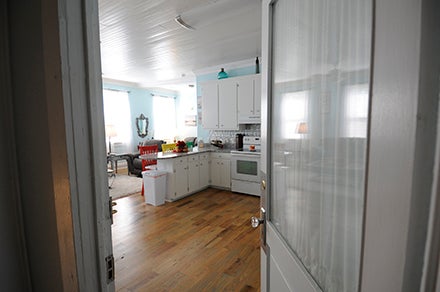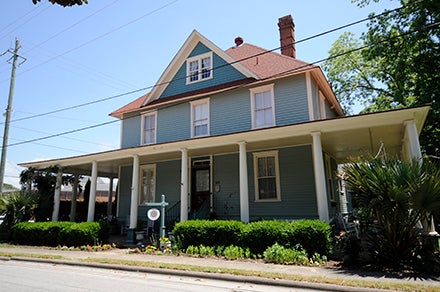Short-term rental regulation a hot issue across the state
Published 7:40 pm Thursday, August 15, 2019
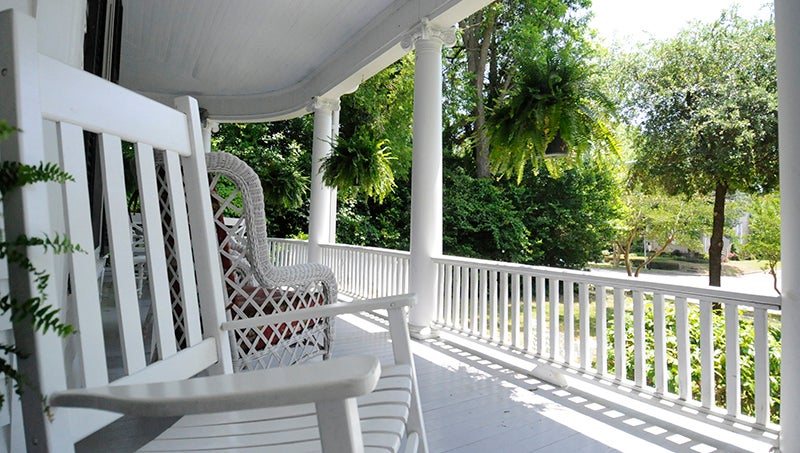
- HISTORIC PLACES: Short-term rentals abound across the country and Beaufort County is no exception. At the state level, legislation is being considered to step in and regulate, but many believe counties and/or cities should do any regulating. In Washington, the Pamlico House (above) and Apartments on Main 1 (below) are two of several Airbnbs located in the historic district. (Vail Stewart Rumley/Daily News)
When a traveler plans a trip, one of the key components to making the most of their experience and their budget is where to stay. In cities like Washington and Belhaven, that quest for experience, for many years, created a niche market for bed and breakfasts. Many tourists want lodging right in the heart of town, where they can walk through the historic district to shopping, restaurants and the waterfront. In recent years, that tourism market has expanded with the rise in Airbnbs, both locally and across the state.
Now, there are some who are asking state legislators to step in and regulate where they can and can’t operate, based on a municipality’s zoning ordinances. According to Washington City Council member William Pitt, it would be bad for business, and tourism, if the state is the one setting parameters on whether these establishments are welcomed or banned from certain areas.
“You can’t paint everything with a broad brush,” Pitt said. “That’s why it’s on each individual community to make each decision or make no decision.”
Pitt, as president of the North Carolina League of Municipalities, recently signed a letter composed with Lynn Minges, president and CEO of the North Carolina Restaurant and Lodging Association, and Nancy Vaughan, mayor of Greensboro and chair of the North Carolina Metropolitan Mayors Coalition, asking House committee members to vote against “efforts to preempt local government authority to regulate short-term rentals.”
“… Rapid growth of short-term rentals can have far-reaching effects on our communities. To protect private property rights requires that neighboring property owners are protected as well. Residents buy their homes with an expectation that neighboring uses will not damage the value of their investments, but short-term rentals in some areas can impact home values and change the character of neighborhoods. Meanwhile, the uniqueness of our cities and towns should be view as a strength, and the needs of each community are very different,” the letter reads.
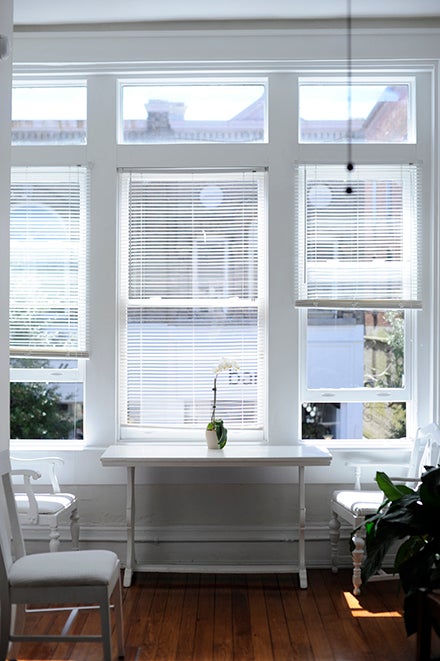
CHOICE STAY: From the airy spaciousness overlooking West Main Street at the Loft on Main (above), to Stuart and Marita Egli’s loft (below) overlooking Stewart Parkway and the Washington waterfront and the former Moss House bed and breakfast (bottom), there are plenty of short-term rentals to be had in the area. (Vail Stewart Rumley/Daily News)
Pitt said most of the complaints spurring the legislation have come from larger municipalities. Wilmington and Asheville, both major vacation destinations, have publicly grappled with the Airbnb issue in recent years. The issue ultimately comes down to a struggle to balance livability concerns with the rights of property owners to use their property as they choose, according to a 2018 study by the North Carolina Law Review. It’s proven a challenge, as a Wilmington short-term rental study revealed: “there are no clear best practices or standards for addressing the issue of peer-to-peer (short-term) rentals.”
Municipal laws have emerged as the way to address the issue. For example, Wilmington, in June 2018, enacted a new ordinance allowing the rental of rooms in a residence with the host on site in all residential districts, as well as some commercial and mixed-use districts. Whole-house rentals, however, are now only permitted in some mixed-use and commercial districts. In Asheville, since January 2018, new short-term rentals are not allowed in the city’s Central Business District at all and are only permitted in areas zoned as “resort district.” Those short-term rentals already in existence when the new ordinance was passed are allowed to stay but now must get an annual permit from the city.
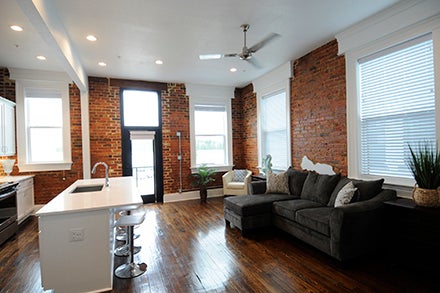 Pitt said the Washington City Council has not discussed creating a short-term rental ordinance, but he believes the state should allow municipalities to forge their own way and decide for themselves whether short-term rentals are a good fit, and where.
Pitt said the Washington City Council has not discussed creating a short-term rental ordinance, but he believes the state should allow municipalities to forge their own way and decide for themselves whether short-term rentals are a good fit, and where.
“It’s an excellent opportunity for people to experience Washington as it really was meant to be — a slowed-down, relaxed view of the city. That’s what they need to experience when they come to the city,” Pitt said. “We think it should it be just left alone.”
The legislation is currently in committee, according to Pitt.


